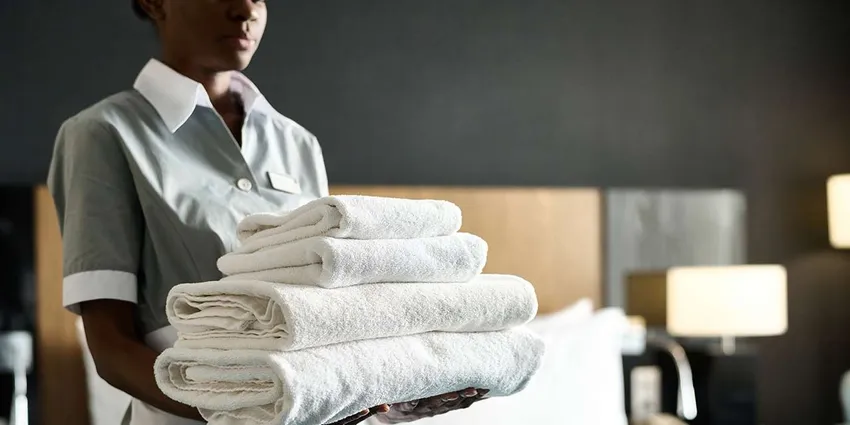A Housekeeper plays an essential role in maintaining the cleanliness, organization, and overall ambiance of homes, hotels, and other establishments. From tidying rooms to ensuring fresh linens and sanitized surfaces, Housekeepers help create a welcoming environment for residents and guests.
If you’re considering an entry-level position in the hospitality or residential cleaning sector, it’s crucial to understand the pros and cons of being a Housekeeper to decide whether this career aligns with your goals.
Pros of Being a Housekeeper
Below, we’ll break down some of the primary benefits of working as a Housekeeper, focusing on job stability, skill development, and more.
1. High Demand and Steady Employment
Whether in hotels, hospitals, or private residences, the need for reliable Housekeepers remains constant. This steady demand often means you can find work relatively quickly, and job stability tends to be higher compared to some other service roles.
2. Opportunities for Flexible Scheduling
Many housekeeping jobs offer part-time or shift-based hours, making it easier to fit work around personal commitments. This can be especially beneficial for students, parents, or those seeking supplemental income.
3. Physical Activity & Routine
For individuals who prefer active work, housekeeping can be a good fit. The role keeps you on your feet, which can help you stay physically engaged. Additionally, having a set list of tasks can create a predictable daily routine.
4. Skill Development
Housekeepers quickly learn time management, attention to detail, and organizational skills. These competencies are valuable in various roles within the hospitality industry, and can also be transferred to other positions.
5. Pathway to Other Roles in Hospitality
Starting as a Housekeeper can open doors to other positions, such as housekeeping supervisor, front desk associate, or even hotel management if you pursue further training and demonstrate strong leadership qualities.
Cons of Being a Housekeeper
Before pursuing a housekeeping role, it’s vital to consider some of the challenges, including the physical demands and potential for limited customer interaction.
1. Physically Demanding Work
Bending, lifting, and standing for extended periods can be tough on the body. Consistent physical strain may lead to fatigue or injuries if you’re not mindful of proper ergonomics and self-care.
2. Repetitive Tasks
Housekeeping often involves performing the same duties—such as vacuuming, dusting, or changing linens—day in and day out. While some enjoy this predictability, others may find it monotonous over time.
3. Exposure to Cleaning Chemicals
Working with cleaning agents comes with potential health risks, especially if safety guidelines aren’t followed. Housekeepers must be cautious to avoid respiratory issues, skin irritations, or allergic reactions.
4. Limited Guest Interaction
Compared to front-of-house roles, Housekeepers typically have less direct contact with customers or guests. If you thrive on social engagement, this aspect may feel isolating.
5. Varying Schedules & Workload
In hotels and resorts, the pace can fluctuate with high-occupancy seasons and events. This can lead to irregular schedules and busier shifts, which may affect your work-life balance.
Is Being a Housekeeper Worth It?
Ultimately, the decision depends on your career aspirations, physical endurance, and personal preferences. If you value steady employment, enjoy organized tasks, and want a role that keeps you active, housekeeping can be a fulfilling job.
However, you’ll need to be prepared for physically intensive work, potentially repetitive tasks, and limited direct interaction with guests.
Key Takeaways:
Remember these important considerations when evaluating whether a Housekeeper position suits your lifestyle and goals.
- Housekeeping roles are consistently in demand, offering stable employment.
- The job can provide flexible scheduling options but involves physical labor.
- You’ll develop transferable skills like time management and organization.
- Advancement into supervisory or other hospitality positions is possible with experience.
Working as a Housekeeper can offer a stable career path within the hospitality industry. If you’re looking for a role that keeps you active, helps you develop valuable organizational skills, and can potentially lead to other opportunities, becoming a Housekeeper could be an excellent option.
Just be prepared for physical challenges and a routine that may feel repetitive—two factors that go hand in hand with keeping spaces pristine and welcoming.








Loading comments...